This blog post will discuss ten essential things all parents should teach their children, such as life skills for a prosperous future.
A parent’s life is a journey of both joys and hardships, and one of the most essential components of parenting is teaching the children valuable lessons they will carry throughout their lives. As parents, our responsibilities are not only to ensure that our children have access to food and shelter, but we are also responsible for shaping our children’s brains and developing the future of any individuals. This blog post will discuss ten essential things every parent should give their children, such as life skills for a prosperous future. These lessons will not only help build your child’s character, but they will also allow them to attract the world confidently. Take a pen and paper, and get ready because we are discovering 10 most important things parents should educate their children to provide them with a wide-ranging upbringing.
After discussing each thing from ten, it will present a few critical points under the heading titled “A few things to know” and then list several exercises under the heading “Some activities.”
For more reading click here.
Teaching Manners and Etiquette

Teaching manners and etiquette is necessary to assist children in developing polite behaviors. Youngsters can start understanding the significance of being courteous and how it impacts their relationships with other people as they grow older.
A Few Things to Know
“Thank you” and “please”: Explain the importance of these words and urge kids to utilize them in their regular dealings. A research from the University of California, Berkeley indications that teaching gratitude can enhance a child’s social behavior and mental health.
Waiting Their Turn: Educate the children on patience and the importance of not interrupting others.
Greeting Others: Be sure they know what to do when greeting people politely, whether with a friendly “hello” or a more formal greeting.
Some Activities
Role-playing Games: Provide scenarios where they can practice saying “please” and “thank you” or taking turns.
Storytelling: Tell stories about characters’ behaviors and emphasize the importance of manners.
Creating Habits of Self-Care and Hygiene

At a young age, you can start developing good habits of self-care and cleanliness, which will last a lifetime. Ensure your child knows how to properly care for themselves and use personal hygiene, all parents should teach kids.
A Few Things to Know
Brushing Teeth: Discuss the importance of brushing your teeth twice daily and correctly. According to the American Dental Association, starting good oral hygiene can protect us from cavities and gum disease.
Hand washing: Encourage kids to wash their hands before eating, using the bathroom, and playing outside.
Dressing Themselves: It’s important to teach kids to dress themselves.
Some Activities
Songs and Rhymes: Get your children to enjoy hand washing and brushing their teeth by singing fun songs.
Routine Charts: Display a visual chart reminding them to perform their hygiene routine daily.
The Development of Social Skills and The Ability To Share
As a child grow, they develop social skills necessary for successful interactions with peers and adults. Giving them opportunities to play cooperatively and share helps them build strong relationships.
A Few Things to Know
Sharing: Educate your children on the importance of sharing and encourage them to share toys and snacks with their peers.
Empathy: Discuss different emotions with them so they can understand the feelings of others.
Playing Well with Others: Help them learn to take turns and play pretty. The National Association for the Education of Young Children (NAEYC) gives emphasis that cooperative play is needed for social development.
Some Activities
Group Playdates: Playdates with other kids are an excellent way to practice sharing and social skills.
Emotion Cards: Various facial expressions may be used to discuss feelings and appropriate responses.
Skills Enhancement in Language and Communication
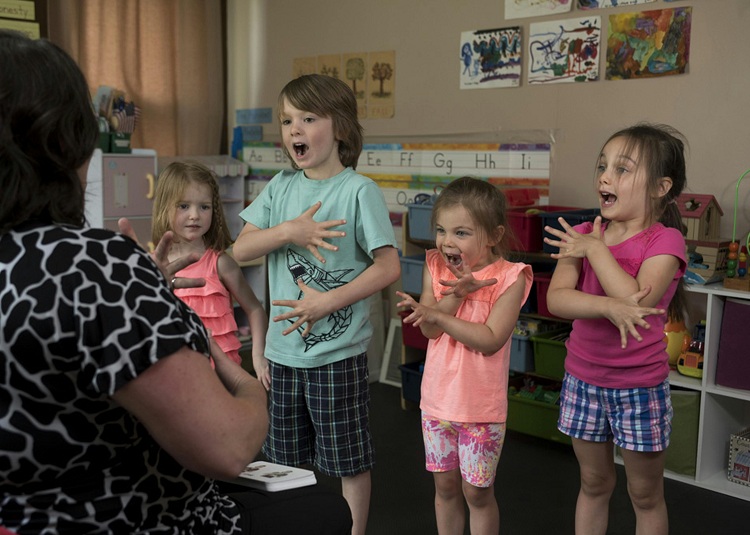
At this age, children’s language skills are rapidly developing. Engaging them in interactive activities and regular conversations will help them improve their vocabulary so, all parents should teach their toddlers.
A Few Things to Know
Expanding Vocabulary: Develop new vocabulary through reading and conversations. The National Institute for Literacy reports that a rich vocabulary is fundamental for academic success.
Expressive Language: Allow them to express their thoughts and feelings.
Phonics and Reading: Use primary phonics and reading activities to keep your child on track to achieve literacy success.
Some Activities
Reading Together: Discuss stories with them as you read.
Word Games: Engage in word games in which you identify words that begin with a particular letter or words that rhyme.
A Basic Introduction to Math And Numbers
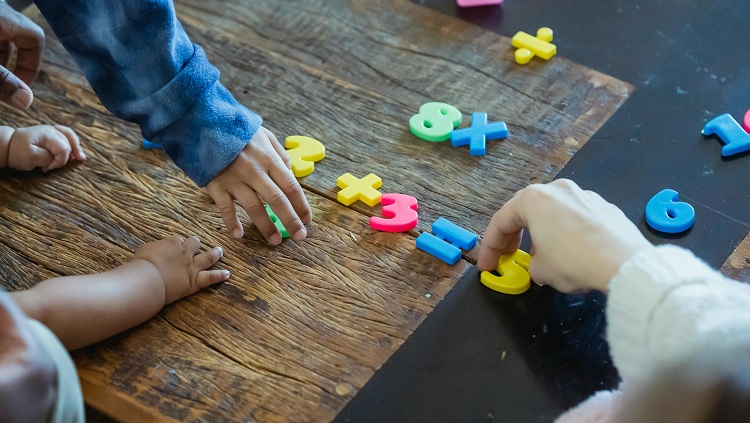
Early exposure to math concepts can make kids love numbers and problem-solving. Engage kids in math through simple, everyday activities so, all parents should teach it for their kids.
A Few Things to Know
Counting Games: Make a habit of counting objects around the house or in nature.
Recognizing Numbers: Teach them how to recognize and write numbers. The National Council of Teachers of Mathematics emphasizes on importance of early number recognition.
Shapes and Patterns: Show them basic shapes and help them figure out patterns.
Some Activities:
Counting Songs: Sing and rhyme songs about counting.
Shape Hunts: Search for different shapes around your house or neighborhood.
Developing Fine and Gross Motor Skills
Fine and gross motor skills are essential for physical coordination and development. Children should be engaged in activities that strengthen these skills.
A Few Things to Know
Fine Motor Skills: Drawing, cutting, and building with blocks are examples of fine motor skills.
Gross Motor Skills: Ensure children engage in running, jumping, and climbing activities.
Some Activities:
Arts and Crafts: Provide drawing, coloring, and cutting materials.
Outdoor Play: Enjoy physical activities like running and climbing in the backyard or playground.
Thinking Critically and Problem-Solving
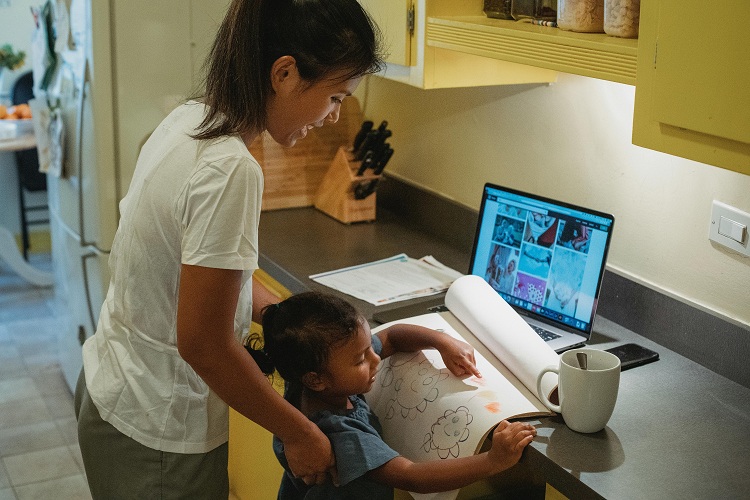
As children develop problem-solving and critical thinking skills, they become more confident and creative when facing challenges. Give them brain-stimulating activities to do.
A Few Things to Know
Puzzles: Start with easy puzzles and make them more complex over time.
Brain Games: Organize games that involve thinking and strategy.
Curiosity and Questions: Let them explore their surroundings and ask questions.
Some Activities:
Puzzle Time: Spend time solving puzzles together.
Science Experiments: Set up simple experiments that spark their curiosity and introduce them to basic science concepts.
Encourage Creativity and Imagination
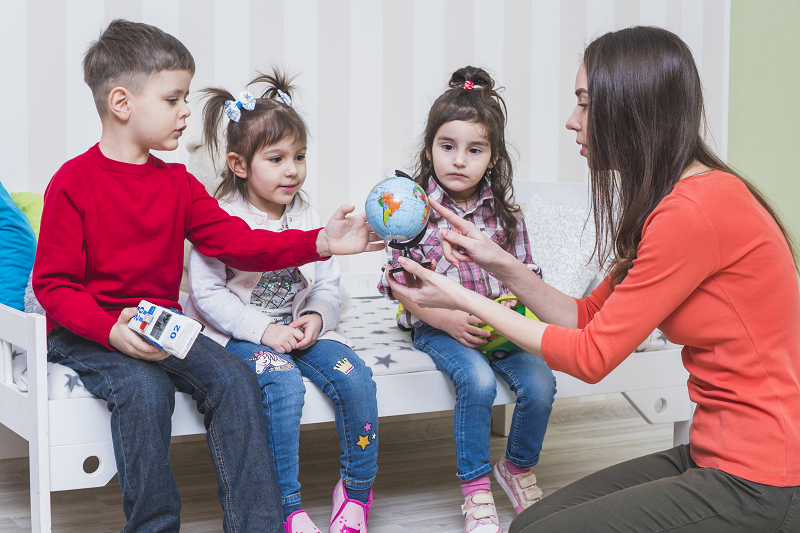
A child’s cognitive and emotional development depends on creativity and imagination. Assist all parents should teach their children in expressing themselves creatively by giving them opportunities to do so.
A few things to know
Art and Crafts: Encourage young children to draw, paint, and make other creative crafts. A research from the National Endowment for the Arts shows that arts education helps for cognitive and social-emotional development.
Role-Playing: Let them use costumes and props to engage in imaginative play.
Music and Dance: Get them involved in dancing and introduce them to music.
Some Activities:
Art Projects: Have an art station with different supplies for them to use.
Dress-Up Play: Invest in a lot of costumes for imaginative play.
The Teaching of Emotional Regulation and Coping Skills
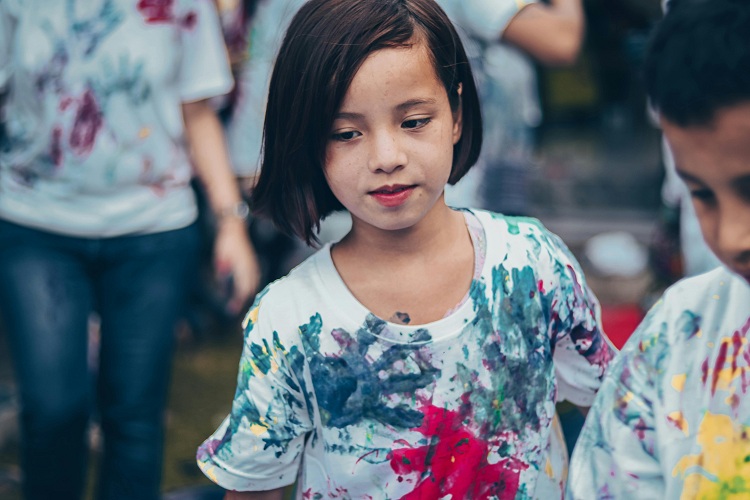
A child’s overall well-being depends on their ability to understand and manage their emotions. parents should teach them how to regulate their feelings and deal with challenges.
A Few Things to Know
Recognizing Emotions: Help them identify and name their emotions. A research from Yale University’s Center for Emotional Intelligence shows that emotional awareness is a key to effective emotion parameter.
Coping Strategies: Teach techniques like deep breathing and counting to ten.
Positive Mindset: Promote resilience and positive thinking.
Some Activities:
Emotion Charts: Help them track their emotions with charts.
Mindfulness Exercises: Participate in mindfulness exercises together, such as deep breathing or guided imagery.
Promotion of basic safety and awareness
Children need to be taught about safety and awareness to ensure they are protected and recognize dangerous situations.
A Few Things to Know
Personal Safety: Teach children not to talk to strangers and keep caregivers close.
Recognizing Danger: Explain how to identify common dangers, including hot surfaces and busy roads.
Basic First Aid: Provide basic first aid instruction appropriate to the age of the children.
Some Activities:
Safety Drills: Do emergency drills, like what to do if something happens.
Safety Walks: Discuss safety signs and signals as you walk.
Conclusion: Inspiring the Next Generation and all Parents Should Teach Them to Be Responsible Adults
In conclusion, the role of a parent is not just about providing the necessities but also about introducing essential life lessons to their children. By teaching our children valuable skills and guiding them through challenges, we are shaping the future generation and helping them become responsible individuals. Parents should teach and must prioritize educating their children on essential life skills that will empower them to navigate various situations confidently and resiliently. Remember, the lessons we teach our children today will have a lasting impact on their lives tomorrow. Let’s commit to intentional parenting and equip our children with the tools they need to succeed.

